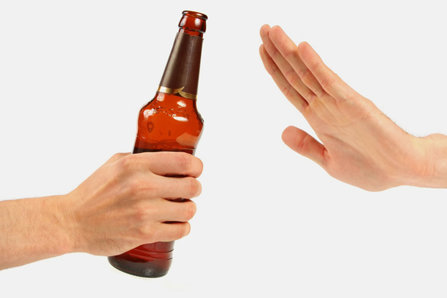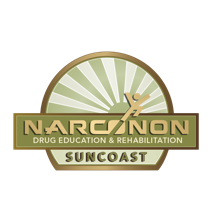3 Things to Never Do
in Early Sobriety

Addiction is a very hard monster to tame. Finding the right treatment is the first step to take after a person has become addicted and wants help. After an addict finds treatment, goes through the program and handles the actual underlying causes to their addiction (hopefully they went to center that actually addresses the real reasons for their addiction), the next most important step is staying sober.
After treatment, former addicts either go home or start over fresh in a new town, city or state with hopes of beginning a new life for themselves. Feeling good both mentally and physically, a recovering addict may feel like nothing can stop them and they’ve “got this.” While there’s nothing wrong with having a positive outlook on sobriety, some former addicts become over-confident and put themselves in questionable situations that could jeopardize their recovery. There’s a lot of pitfalls in early recovery that can be completely avoided as long as the former addict is vigilant about their sobriety.
Here are 3 things a recovering addict should NEVER do in early sobriety:
Don’t hang out with old friends
After they graduate and return home, a lot of the time they go back and try to re-enter the group of friends they were a part of before going into treatment. Armed with a new knowledge of drug addiction and how to live life, he or she may think that they can go and be a positive influence on this old group of friends. More often than not, this scenario ends poorly for the recovering addict. The person’s real friends went by the wayside years ago. Very few addicts stay close with their life-long friends; those who truly cared for them. Usually, an addict becomes distant from their true friends as their addiction takes hold and gravitates toward those that condone their drinking or drug use. Their current group of “friends” were “using buddies” they’d go out and drink and get high with. Surrounding themselves again with these “friends” puts the recovering addict in imminent danger. Those “friends” are most likely still using and drinking. When confronted about hanging out with them the former addict might say:
“I’m just trying to help them.”
“I won’t hang out with them if they’re drinking or getting high.”
While their intentions may be good, being around people who are getting high is an unnecessary risk for the addict and could result in relapse.
Don’t drink!
This should be painfully obvious, but for some families, it might not be. Let’s call it what it is and say that, yes, alcohol is a drug. While it might be legal and completely socially acceptable, it’s a big “no, no” for anyone in recovery. Former addicts may be tempted to drink while at a family barbecue or a wedding. And totally uninformed, the family might let them or encourage them! They may even get tempted to go out to a bar with friends who aren’t addicts or alcoholics; so-called “normies.” Counselors who follow up with recent program graduates commonly hear:
“I was a heroin addict, not an alcoholic! I can have a beer if I want to…”
“I never had a problem with alcohol so it’s fine!”
A recovering addict may have every intention on staying sober at all costs, but if they drink, all bets are off. Alcohol lowers inhibitions and reduces one’s judgement. It may only take a few drinks for the recovering addict to want to do a line of coke or pop a couple pills.
“It’s no big deal, just a one-time thing.”
“It’s not gonna be a regular thing. I can control it now.”
These are the thoughts that might go through their head once alcohol is introduced into the equation and it never ever ends well. The best proactive measure against this is to not drink. Period.
Don’t get bored
Early recovery can create a lot of down time in a recovering addict’s daily life. Once they get settled back home, in a halfway house or wherever it is they are going to live, the real work begins. The former addict now has to start a new life, get a job and live “normally” without drugs and alcohol. They should spend their days looking for jobs and taking up some good habits and routines. They should find work, help their families around the house, exercise, volunteer somewhere and assist others. These are all preventative measures against getting bored.
Boredom is one of a recovering addict’s biggest enemies. A lot of addicts used drugs to cope with boredom and being bored can re-activate that desire to get high as a way of having something “fun” to do. Don’t allow someone newly recovered from addiction to sit on the couch and watch TV all day and be unproductive. The more active they are, the more they accomplish and produce, the happier they will be. Make sure they stay busy and active, putting one foot in front of the other to get their lives moving in the right direction.
Early recovery doesn’t have to be tricky or hard. Yes, there is an adjustment period once a person leaves treatment for sure. After the initial adjustment it’s crucial that the recovering addict avoid their old “buddies,” never drink alcohol and don’t get bored. Hanging out with old cronies, drinking and being bored regularly results in unnecessary relapses that could have been completely avoided. Early in the recovery process, the former addict needs to be hyper-vigilant in protecting their sobriety at all costs. Now that treatment is over and they are back in the “real world,” the real work begins.


